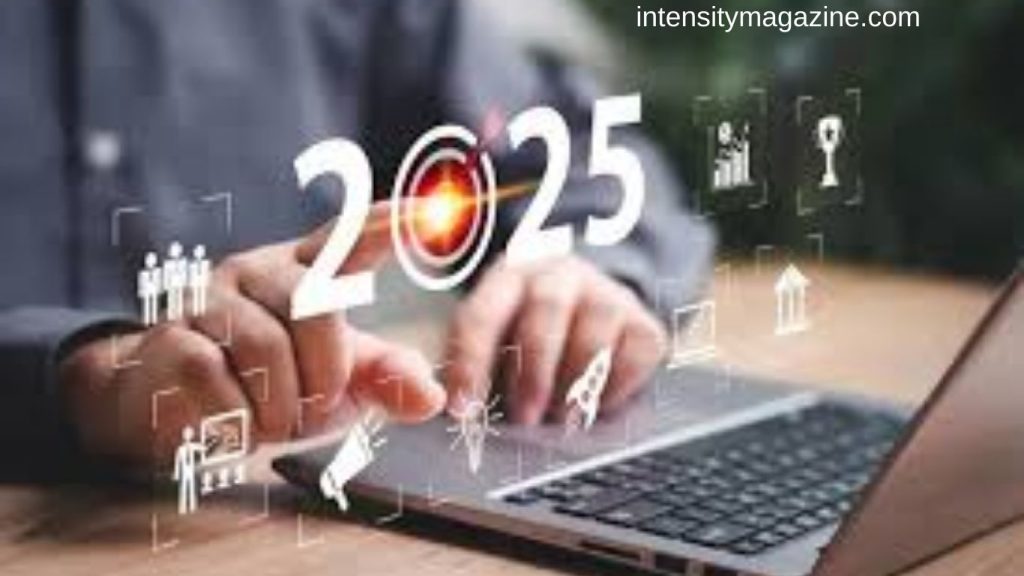The world of digital marketing is evolving at lightning speed, and 2025 promises to be one of the most transformative years yet. Marketers are navigating shrinking budgets, rapidly advancing technology, and shifting consumer behaviors. The challenge? Delivering measurable results while keeping pace with new platforms, tools, and audience expectations.
Artificial intelligence (AI), social media disruption, new search behaviors, and the rise of younger audiences like Gen Alpha are shaping the future of digital campaigns. Staying ahead requires not only awareness but also action—knowing which trends to embrace and how to apply them to achieve growth.
This article explores the five most impactful digital marketing trends for 2025 and how you can leverage them to outperform your competition.
Social Media Trends: Authenticity Over Algorithms
Social media remains a powerhouse, with users spending over two hours daily across nearly seven platforms. For marketers, this is an unparalleled opportunity to connect with diverse audiences. But the platforms and the type of content that resonates are changing fast.
The Battle of Real-Time Platforms
X (formerly Twitter) continues to decline due to content moderation issues and low engagement. Platforms like BlueSky and Meta’s Threads are stepping up as alternatives.
BlueSky, created by Jack Dorsey, appeals to users who prefer niche communities, ad-free feeds, and editorial control.
Threads, with over 275 million users, offers simple, discussion-driven interactions. Its rapid feature rollout makes it a strong contender for real-time engagement.
Expert tip: On Threads, text-based educational or humorous content performs best, offering users a break from the video-heavy feeds of other platforms.
Employee-Generated Content Gains Ground
Employee advocacy is emerging as one of the most authentic ways to build trust. LinkedIn, projected to surpass 800 million users in 2025, is becoming the hub for employee-generated content (EGC). Sharing real voices from within a company not only boosts brand credibility but also enhances recruitment and customer loyalty.
Expert tip: Keep EGC natural, unscripted, and story-driven. Audiences value relatability over polish.
Customers Over Influencers
While influencer marketing still matters, brands are shifting toward customer collaboration. Instead of relying on celebrity endorsements, companies are building communities with loyal users who co-create authentic content.
Expert tip: Offer private engagement channels for VIP customers—exclusive live sessions, behind-the-scenes updates, or early product drops foster deeper loyalty than traditional influencer campaigns.
Artificial Intelligence: From Tools to Agents
AI is no longer optional; it’s the backbone of modern marketing. In 2025, over half of marketers are already using AI for research, automation, and campaign optimization. But the focus is shifting from “whether” to use AI to “how” to use it effectively and ethically.
Overcoming AI Fatigue
The surge of new AI tools has created excitement—and burnout. Marketers are pressured to adopt platforms quickly, often without proper training. This results in AI fatigue, where technology feels like more work instead of a solution.
Expert tip: Identify specific processes—like analytics or A/B testing—that AI can automate to free up time for strategic and creative tasks.
The Rise of AI Agents
2025 marks the shift from AI “saying” to AI “doing.” AI agents can now run campaigns end-to-end, manage analytics, and even adjust ads in real time. For example, ChatGPT and similar tools can generate content, distribute it, and test performance automatically.
Expert tip: Use AI agents to automate reporting from tools like Google Analytics and Meta Ads. This ensures you’re always optimizing campaigns with fresh data.
AI in E-commerce & Ads
AI is revolutionizing retail and advertising by personalizing shopping experiences and improving ad performance. Expect growth in:
- Hyper-personalized recommendations
- AI-driven chatbots and assistants
- Voice commerce integrations
- Dynamic pricing models
- Automated campaign optimization
“AI will soon give advertisers greater control and visibility,” notes Nikki Lindgren, Founder of Pennock. “Machine learning will do the heavy lifting, while strategic marketers will extract maximum value.”
Marketing Skills in Demand: Human Meets AI
The skills gap is widening. While AI knowledge is vital, employers increasingly value soft skills that AI can’t replicate.
Soft Skills Drive Growth
LinkedIn reports a 138% rise in demand for collaborative problem-solving skills since 2021. Employers want marketers who can think critically, adapt quickly, and lead teams effectively.
Expert tip: Strengthen skills like leadership, negotiation, and creative thinking through mentorships, workshops, and collaborative projects.
Refining AI Skills
Marketers must learn not just how to use AI but how to maximize it strategically. That means advanced prompt engineering, campaign optimization, and ethical AI usage.
Expert tip: Dedicate time to exploring AI tools you already use—master them rather than chasing every new release.
Beyond Marketing Knowledge
To thrive in 2025, marketers need a cross-disciplinary mindset. Understanding finance, sales, and operations helps align campaigns with business growth.
“Marketers need to move beyond tactics,” says Jim Lecinski, Marketing Professor at Kellogg School of Management. “Knowing how to drive profitable growth is the new baseline.”
Search Marketing: SEO Evolves into GEO
Search behaviors are shifting fast, and traditional SEO is no longer enough. Gartner predicts search traffic will drop 25% by 2026 as users migrate to social and AI-driven searches.
Social Search on the Rise
Gen Z and Gen Alpha increasingly use TikTok, Instagram, and YouTube as primary search engines. Brands must adapt by optimizing profiles, integrating keywords, and producing platform-native content.
Voice Search Expansion
With over half of voice shoppers using assistants for research, optimizing for voice-friendly queries is crucial. Think conversational content, long-tail keywords, and local SEO.
Generative Engine Optimization (GEO)
The future of search lies in AI-powered search results from tools like Google AI Overviews, ChatGPT, and Perplexity. Optimizing for GEO requires fresh, authoritative, and structured content designed for AI interpretation.
Expert tip: Audit your content for AI visibility—structured data, FAQs, and original research boost your chances of ranking in AI-driven search results.
Content Marketing: Quality, Longevity, and New Audiences
Content remains central to digital strategy, but 2025 is about doing more with what you already have and preparing for new generations of consumers.
Refreshing Older Content
Updating high-performing but outdated content can drive a 106% traffic increase, according to Neil Patel. Adding visuals, original research, and fresh insights revitalizes content and improves rankings.
Human + AI Collaboration
Consumers distrust purely AI-written content—52% disengage when they suspect AI authorship. The solution is hybrid content: AI for research and structure, humans for creativity and authenticity.
Gen Alpha Engagement
Born after 2010, Gen Alpha is socially aware, digitally native, and values diversity and sustainability. Gamification and community-driven content resonate strongly with this group.
Expert tip: Explore interactive content like challenges, educational games, and immersive storytelling to build loyalty with Gen Alpha.
Frequently Asked Questions:
What are the top digital marketing trends to watch in 2025?
The biggest trends include AI-driven marketing, employee-generated content, social search optimization, generative engine optimization (GEO), and content tailored for Gen Alpha.
How is artificial intelligence changing digital marketing?
AI is moving from simple tools to advanced AI agents that automate campaigns, optimize ads, and deliver hyper-personalized customer experiences.
Why is social media still critical for business growth in 2025?
With users spending over two hours daily across multiple platforms, social media is essential for brand visibility, community building, and authentic engagement.
What skills do marketers need to succeed in 2025?
In addition to AI expertise, marketers need soft skills like leadership, collaboration, and problem-solving, plus cross-functional knowledge in finance, sales, and customer strategy.
How is SEO evolving in 2025?
Traditional SEO is shifting toward social search, voice search, and GEO (Generative Engine Optimization), which focuses on ranking in AI-powered search results.
What role does content marketing play in the future?
Content remains king but must be refreshed, authentic, and optimized for both humans and AI. Interactive formats, hybrid AI-human creation, and Gen Alpha-focused content are leading the way.
Why is employee-generated content becoming so popular?
Audiences trust authentic, relatable voices. Employee-generated content on platforms like LinkedIn boosts brand credibility, recruitment, and customer loyalty.
Conclusion
The digital marketing landscape of 2025 is evolving faster than ever, driven by AI, authentic content, and changing consumer behaviors. Businesses that adapt early—by embracing generative search, leveraging employee voices, and building authentic customer connections—will not only stay competitive but also unlock long-term growth. The future belongs to brands that combine innovation with authenticity.



